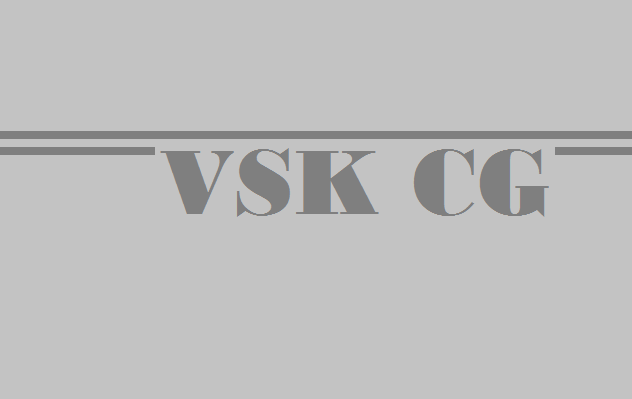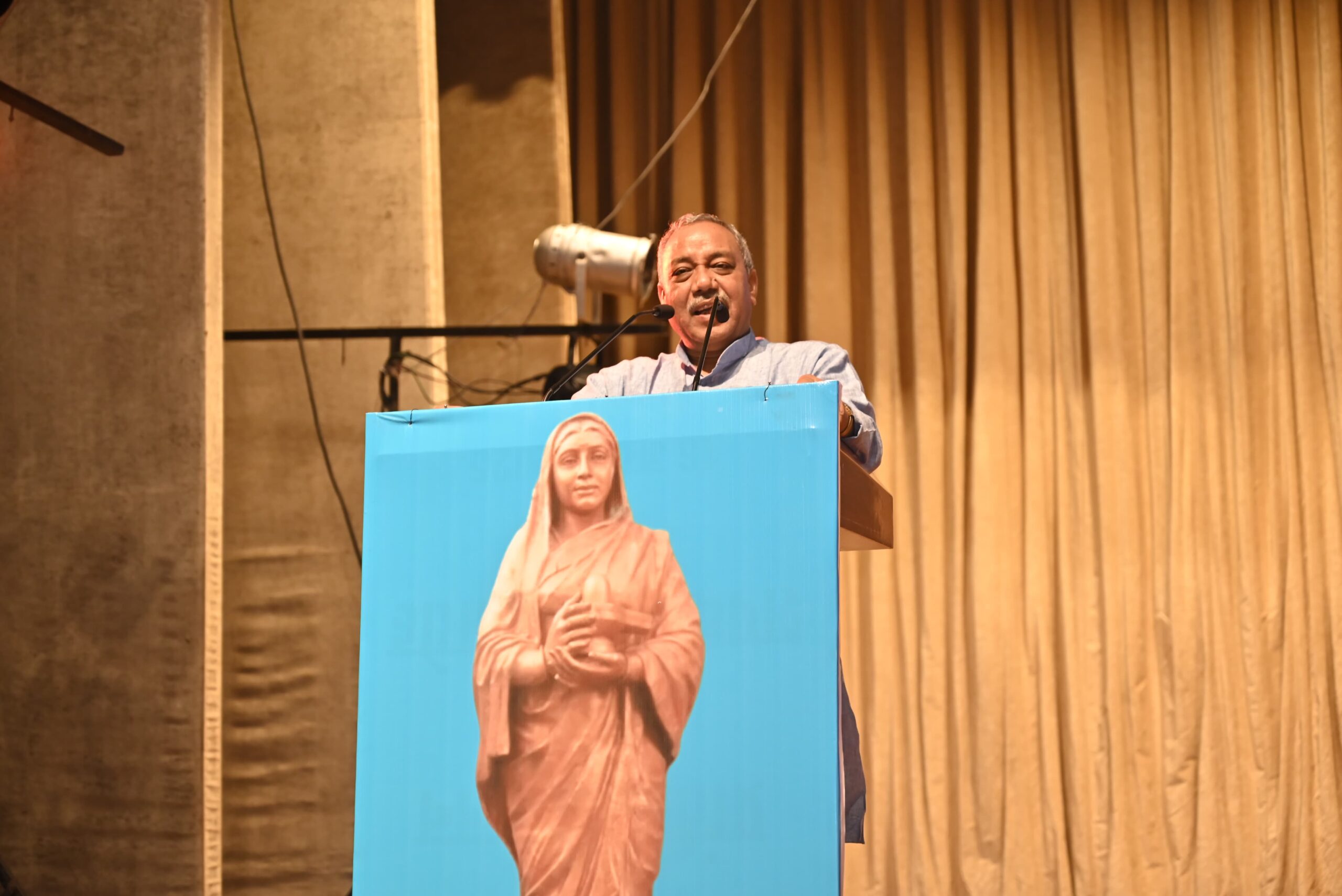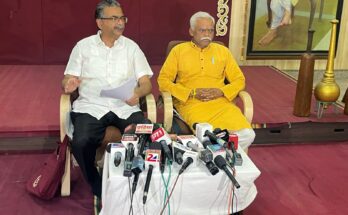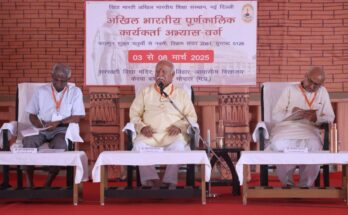https://www.opindia.com/2019/03/how-the-congress-party-and-its-allies-supported-terrorism-in-the-
1998-coimbatore-blasts-case/
There was a trend on Twitter “#RahulLovesTerrorists” after Rahul Gandhi referred to Masood Azhar
as “Masood Azhar ji”. However, the actual pro-terrorist policies of the Congress have been far more
dangerous and serious than a mere mention of ‘Ji’. Sam Pitroda’s statement trivializing the Pulwama
attack and disapproving the airstrikes too appears to be nothing as compared to other dangerous
actions and statements of the Congress Party, its leaders and its allies like the DMK.
There were devastating bomb blasts in Coimbatore on 14 February 1998 which killed 58 people and
nearly killed L K Advani, who had a miraculous escape as his flight was delayed by over 90 minutes.
The then Congress President Sitaram Kesri made a ridiculous and bizarre allegation at that sensitive
time, blaming RSS for the blasts.
After this, the RSS sued Sitaram Kesri and there were reports that he denied having made the
allegation. But he then denied having denied the allegation and stuck to his charge. An incident like
the deadly Coimbatore blasts nearly killing Advani and killing 58 people, many of whom were BJP
workers also was not enough to infuse humanity and the Congress made such a reckless, insensitive
and inhumane statement. Not just that, the party fully backed this charge. The Tamil Nadu unit
president of the party said: “If the bomb was planted by somebody other than the BJP, they would
definitely have killed Advani. Because it was planted by them, they purposely delayed Advani’s
meetings.”
That’s not all. The Islamic radicals who carried out these bomb blasts belonged to the Al-Umma and
the TNMMK. After these blasts, the Congress actually allied with Tamil Nadu Muslim Munnetra
Kazhagham (pronounced ‘Kalagham’, ‘la’ like in Tamil) – a party involved in these Coimbatore blasts
after the blasts- in 2004, 2006etc. The TNMMK used to contest polls directly earlier. In Feb 2009 it
formed a separate political wing called Manithaneya Makkal Katchi (MMK).
Those 1998 Coimbatore blasts occurred due to pro-terrorist policies of the DMK Government. Before
those blasts, there were clashes in November 1997 there. A police constable named Selvaraj was
killed by Muslim fanatics first, and in the riots which erupted later, 18 Muslims were killed. Even
Communist magazine Frontline reported:
“The killing of Selvaraj was one singular incident that led to the polarisation of Coimbatore on
communal lines. Al Umma cadres stabbed Selvaraj on the night of November 29 when he was
regulating traffic at Kottaimedu, a Muslim-majority area…Earlier that day, Sub-Inspector M.
Chandrasekaran of Bazaar police station near Kottaimedu detained Jehangir, an Al Umma office-
bearer, and two other Muslim youth for riding on a motorcycle without a driving licence. Mohammed
Ansari, who was then Al Umma State secretary, went to the police station and demanded their
release. A row broke out between the S.I. and Ansari, with the latter threatening to “break Coimbatore
in two”.
About an hour later, four Muslim youth stabbed 31-year-old Selvaraj, who was totally unconnected
with the earlier incident. Al Umma men wanted to target a policeman because its members had been
detained at the police station and Ansari was “humiliated” at the police station. Ironically, Selvaraj had
stepped in to relieve another traffic constable.
The death of Selvaraj infuriated the police force. They struck work the following day and demanded
the arrest of the assailants. They alleged that the Dravida Munnetra Kazhagam (DMK)
government did not allow them to take action against Al Umma. They were also infuriated by
the fact that four policemen and prison officers had been stabbed or murdered in Coimbatore
and Madurai by Muslim extremists in the 18 months preceding the murder of Selvaraj.The
policemen’s families also staged dharnas, demanding security for the law-enforcers. The situation
was so grave that the government called out the Army and the Rapid Action Force to bring back
normalcy to the city (Frontline, December 26, 1997).”
Thus, the DMK interfered in the working of the police and prevented them from acting tough against
Al-Umma, which was not even banned by the DMK Govt till the 14 Feb 1998 blasts. The DMK
Government banned Al-Umma only after the blasts. There was a Gokulakrishnan Commission
appointed to probe the Coimbatore clashes of Nov 1997 and the blasts. Even Frontline magazine of
June 2000 said after it gave its report:
“The Gokulakrishnan Commission of Inquiry blames security lapses for the explosions.
The report comes down heavily on the police for their failure to search the Babulal Complex building
on Tirumal Street before the blasts even though they had information about the clandestine
movement and storing of bombs by “terrorist groups” at an abandoned building near Saravana Metal
Mart. If they had searched and combed the nearby area, they would have unearthed the plot by Al-
Umma men, arrested the terrorists and seized the bombs prior to February 14. This would have
aborted the conspiracy, the report says.
Swift action by the police in the early hours of February 15 led to the unearthing of the plot to create
terror in Coimbatore, the arrests of Al-Umma cadres and the seizure of detonators and lethal
weapons. “The major part played in this storming operation” by Sub-Inspector M. Chandrasekaran “at
the risk of his life” not only saved the lives of police personnel and the public but became “an eye-
opener to the Special Investigation Team to nab the terrorists and unearth the concealed bombs”, the
report says. “
The Police, of course, wanted to take action but were prevented by the DMK Government from doing
so, before the blasts. Even Frontline blamed the DMK Government for not preventing the Coimbatore
blasts. It said: “The crackdown initiated by the Tamil Nadu Government following the blasts was
doubtless effective, but it could not absolve it of the criticism that it had failed to prevent the terrorist
attack by acting on intelligence reports and following up on earlier seizures of explosives. It
seems fair to state that the DMK Government failed to differentiate between the large mass of
innocent Muslims and the small number of fundamentalist Muslim leaders who have exploited
and preyed on the feelings of insecurity among innocent Muslims. It should have shown a greater
sense of urgency in isolating the hardcore of Muslim fundamentalists and taking action against them.”
India Today reported soon after those blasts in an article by l. R. Jagadheesan and K.M. Thomas:
“The Opposition has accused the Government of failure to anticipate the violence and the blasts
and take preventive steps…Stung by criticism, the Government took some decisive, though
belated, action against those suspected to be behind the blasts. It ordered a ban on two
Muslim fundamentalist organisations, Al Umma and the Jehad Committee. Some of their
leaders, including Al Umma President S.A. Basha were detained.The chief minister’s
(Karunanidhi’s) stern warnings to them were followed by raids on several extremist hideouts on
February 15. Eight people arrested in the raid were later identified as Al Umma activists. Post-blast
violence too was swiftly contained with the deployment of the Army and paramilitary forces.
Intensified patrolling proved fruitful on February 16, when the police found 60 kg of explosives in a car
in a residential area. It took two days to defuse the bombs…The extremists’ menace had been
looming large for quite some time in the state, but political compulsions prevented the state
Government from taking decisive action. Police sources in Coimbatore say the Government
was well aware of the movement of Muslim fundamentalists, but fearing a minority community
backlash during the polls, it delayed action against them.
The charges seem to have rattled the ruling combine in the state, and fearing electoral repercussions,
it has roped in actor Rajnikanth for damage control. In repeated telecasts on the DMK-owned Sun TV,
the celluloid superstar has blamed the BJP and Jayalalitha for fomenting trouble. He said the blasts
were the handiwork of those interested in an AIADMK-BJP government at the Centre. Congress
President Sitaram Kesri has squarely blamed the RSS for the blasts. Denying the charge, however,
the RSS has filed a defamation suit against Kesri.”
The timeline of the Coimbatore blasts and the belated action taken by the police and recovery of huge
quantity of arms and explosives and arrests of Islamic radicals can be seen here. It shows that the
DMK government could have easily done that much before the blasts, but it allowed terrorist
organizations like Al-Umma to function due to its pro-Muslim policies.
However, the DMK Government at least banned the Al-Umma and took action after the blasts, but the
Congress continued to defend the terrorists even after the blasts and instead accused RSS of
carrying out the blasts.
Most political leaders and parties expressedshock and revulsion over the blasts. The then President
K.R. Narayanan and Prime Minister I.K. Gujral expressed shock over the bombings, DMK president
and TN Chief Minister M. Karunanidhi said the blasts were part of a conspiracy by foreign forces to
disrupt the electoral process. The then Union Home Minister Indrajit Gupta and CPI(M) general
secretary Harkishan Singh Surjeet too said that they suspected a foreign hand behind the blasts.
Gupta blamed the ISI for attempting to disrupt the election process in India. But the Congress
stooped to an unimaginably low level even in this case.
The DMK came to power in Tamil Nadu in May 1996. Towards the end of 1996, G. Bhoopalan, a
warder in the Coimbatore Central Prison, was killed by Muslim militants, in a petrol bomb attack in the
prison. The RSS office bomb blast in Chennai in August 1993 during AIADMK rule which killed 14
people including 6 high-level pracharaks, resulted in a crackdown on fundamentalist organizations,
especially the Al-Umma by the AIADMK Government. But under the DMK rule. 16 Al-Umma men
who had been detained under TADA for their alleged involvement in this RSS office blast of
August 1993 and for possession of weapons werereleased on bail in January 1997 when the
DMK Government prosecutor did not oppose their bail.
The complacent policy continued even after Tamil Nadu police commandos, following a tipoff, seized
a huge cache of explosives (gelatin sticks), detonators, iron pipes, PVC pipes, alarm clocks, cables,
wires, soldering equipment, saws and testers, all of which are used in the making of bombs. The
seizure took place from a house at Kodungaiyur, a suburb of Chennai, on March 11, 1997. The police
arrested two fundamentalists belonging to the Al-Umma group: Mohammed Khan alias Sirajuddin (26)
and Shahul Hameed alias Aftar (22). Mohammed Khan is the brother of S.A. Basha, one of the
founders of Al-Umma.
A series of bomb explosions had convulsed Tamil Nadu in November-December 1997, just two
months before the Coimbatore blasts. Blasts shook the Cheran Express, the Pandyan Express and
the Alleppey Express trains on December 6, 1997, the anniversary of the Babri Masjid demolition. The
police said that the Islamic Defence Force of Kerala, a shadowy outfit, was behind these explosions,
which killed nine persons.
On January 10, 1998, a blast occurred under the Anna flyover in the heart of Chennai, and the Islamic
Defence Force claimed responsibility for this. This was followed by a powerful blast in a rice mill at
Saliyamangalam, near Thanjavur, on February 8. The police seized a big cache of explosives and
detonators from the mill. Police investigation revealed that Abdul Khader, son of the mill owner, Abdul
Hameed, was connected to Muslim fundamentalist organisations. Both the owner of the mill and his
son were arrested. Abdul Khader was seriously injured in the blast. Then came the seizure of
hundreds of detonators from Vepery and Tambaram in Chennai, from two Muslims connected with
militant organisations. Here, the police seized about 84 gelatin sticks, 50 kg of sulphur, 11.5 kg of
ammonium nitrate, 100 detonators, two country pistols, and bottles containing nitric and sulphuric
acid.
There was no crackdown, let alone ban, on Al-Umma even after all these blasts and acts, not
even after the 8 February blast. These indications and warnings of big trouble failed to make the
State Government act firmly. It was a significant failure of preventive action.
Banned fundamentalist outfit Al-Umma president SA Basha openly threatened to kill the then Gujarat
Chief Minister Narendra Modi if he visited Coimbatore in July 2003. The open warning was given by
Basha and 8 others while talking to journalists in the Coimbatore court premises after they were
convicted and sentenced to life imprisonment in a case relating to the murder of a Hindu Munnani
leader. Such a man with his organization Al Umma was allowed to function openly by the DMK
Government till the 14 February 1998 blasts.
Diehard anti-RSS magazines like Outlook and Frontline too accepted the role of the Tamil Nadu
Muslim Munnetra Kazhagam (TNMMK) in these blasts. Frontline reported in March 1998: “Within
hours of the blasts, the Tamil Nadu Government banned Al-Umma and the Jihad Committee. Al-
Umma founder-president S.A. Basha and 12 other members of the organisation were arrested in
Chennai; explosive materials and weapons were seized from his house in Triplicane, Chennai.
Leaders of the Jihad Committee and the Tamil Nadu Muslim Munnetra Kazhagam (TMMK) were
arrested in a State-wide crackdown. Among those arrested were Jihad Committee president R.M.
Haniffa, general secretary Mohammed Haniffa, student wing secretary Akram Khan, TMMK president
and college lecturer M.H. Jawahirulla and treasurer G.M. Pakkar. Over the next few days, over 100
activists of the three organisations were arrested at Keezhakkarai, Devakottai, Dindigul,
Nagapattinam, Thanjavur, Nagercoil, Melapalayam and Udumalpet. About 1,000 others were
detained as a precautionary measure…”
Even Outlook accepted TNMMK’s involvement in the Coimbatore blasts. It said:
“As the crackdown following the February Coimbatore blasts continues, it is disturbingly clear that the
ordinary Muslim is becoming increasingly alienated. Every day the police recover quintals after
quintals of explosives hidden by the ‘fringe’ Islamic fundamentalist group, Al Umma—which, as it now
turns out, is in fact a rather well connected terrorist outfit…
Initially the Muslim groups were splintered into as many as 10 major outfits. However, after the
November riots in Coimbatore most of them started working in tandem. The most significant groups
are: the Tamil Nadu Muslim Munnetra Kazhagam, All India Jihad Committee, Al Umma, Tamil
Islamic Peravai, Sunnath Al Jammath Youth Front, SIMI (Students Islamic Movement of India),
Students Organisation of Islam, Muslim Protection Force and the JAQH (Jamiathul Ahle Quaran Wal
Hadis).
…According to arrested members of the Al Umma, the ISI had suggested the elimination of the Hindu
Munnani leader, Rajagopal, in Madurai in 1994. And the RDX used to blast the RSS office (August
1993) and the Hindu Munnani office (1995) was supplied by the ISI.
…By December 15, they (Al Umma men) also managed to get the support of the People’s Democratic
Party chairman Abdul Nasser Madani—a radical Islamic figure of Kerala—in mobilising additional
explosives. According to police sources, explosives weighing nearly 1,000 kg were accumulated in
four weeks.”
This is enough to know the involvement of the TNMMK and Abdul Madani in those blasts. We must
now see the pro-Madani and pro-TNMMK acts of the Congress, Left and DMK.
DMK returned to power in Tamil Nadu in May 2006 after a 5-year rule of AIADMK from 2001-06. The
Indian Express reported on 24 July 2006 in a report titled: “DMK turns the jail into a spa for
Coimbatore terror accused”-
“Introduction: Ayurvedic massages for Abdul Nasser Mahdani paid for by taxpayer, wife facing arrest
warrant has free access, no checks
One man has reason to laugh at all the tough talk on the need to crack down on terror: Abdul Nasser
Mahdani, key accused in the 1998 Coimbatore serial blasts that targeted BJP leader L K Advani and
killed 58 people and left several more injured.
For, ever since he (Karunanidhi) was sworn in as Chief Minister, the atmosphere has been upbeat in
the high-security prison here, housing Mahdani and 166 Al Umma prisoners, mostly arrested for the
Coimbatore blasts. Thanks to Karunanidhi, a team of 10 masseurs and four senior Ayurvedic doctors
began their “high quality treatment” on Mahdani, who has been housed in the prison’s hospital wing
since 2001…
While the prison manual says that a prisoner pays for the cost of any private medical treatment he
avails, the Tamil Nadu government is using taxpayers’ money to pick up the bill for Mahdani’s “dhara”
and “pizhichil” (the ayurvedic massages)…
But what has infuriated investigating officers in the blast case is the move by the Chief Minister’s
Office to quietly lift the ban under Section 268 CrPC, restricting Mahdani’s movements within the
prison.
“Soon after the DMK came to power, there were attempts to move him out of the prison and get him
treatment outside, preferably in Kerala. We strongly resisted such a move. With a friendly government
in Kerala, we can never hope of seeing him again, particularly when the trial (in a special court) is
likely to end in three months’ time and a verdict is expected soon,” pointed out a senior police officer
on the condition that he be not named…In fact, in the pre-blast days, the DMK, then ruling Tamil
Nadu (1996-2001), was accused of flirting with Muslim militancy and turning a blind eye to the
activities of Jehadi groups like the Al Umma.”
Though the DMK was forced to act against Islamic radicals after the Coimbatore blasts, and it did not
follow an openly pro-terrorist policy from 1999 to 2003 during the period of its alliance with the BJP at
the Centre, it went back to its true nature 2004 onwards. It again got the support of TNMMK for 2004
Lok Sabha polls and also for the 2006 Assembly polls in Tamil Nadu, which it won. Barely two weeks
after it was sworn in in May 2006, Tamil Nadu’s DMK government ordered that cases be dropped
against 12 Muslim fundamentalists, all followers of Kichaan Buhari, an Al-Umma sympathizer and key
accused in the Coimbatore serial blasts. The Indian Express of 8 August 2006 reported:
“…Senior Policemen in Thirunelveli were shocked by what they termed the DMK Government’s
‘blatant sympathy’ for the Muslim fundamentalists. Obviously, the accused committed the offence with
the grave intention to create law and order problems and disrupt peace in Tirunelveli district, known to
be communally sensitive. Also, all of them have links with Muslim fundamentalist outfits. The
government should have allowed the law to take its natural course. For a new government to resort to
such a move is rather demoralising for the police force,” said a senior police officer in Tirunelveli.
Police officials say that in one of the cases, Crime No. 15 of 2001 registered at the Melapalayam
police station, while two of the five accused were juveniles and let off given their age, the other three,
including M S Syed Mohammed Buhari, Sheik Hyed and Jafer Ali had “admitted to the offence”.
“Despite this, the government ordered the withdrawal of cases against them,” an officer said… There
are also allegations that the ruling DMK was bending backwards to appease its electoral ally,
the Tamil Nadu Muslim Munnetra Kazhagam (TMMK). A section of the police believe that the
dropping of the six cases by the DMK government could be part of a pre-poll deal with the
TMMK.”
The TNMMK was not just the DMK’s alliance partner, it was also of the Congress. The Congress too
was a part of the Democratic Progressive Alliance (DPA) alliance in Tamil Nadu with DMK and hence
TNMMK was its partner too. It is one thing to ally with a mainstream party whose ‘some members’
may have been guilty of involvement in terrorism in the past while the party, on the whole, is sensible,
but it is quite another to ally with a radical pro-terrorist party & release terrorists and withdraw cases
against them due to pressure of that party. [At that time, DMK had 97 MLAs out of 234 in the Tamil
Nadu Assembly with the Congress having 33. DMK-Congress had a comfortable majority without
needing the support of any other allies, and TNMMK did not have a single MLA, though it supported
the DMK-led Congress allied DPA.]
This misplaced sympathy for the sake of vote banks was the reason behind the DMK
government’s refusal to appeal against the acquittal of Abdul Nazar Madani in the 1998
Coimbatore blasts case.
The Congress Legislature Party passed a resolution in the Kerala Assembly in 2006 demanding
release of Abdul Madani who was in a Coimbatore jail from 1999 onwards. This was also supported
by the Left, the Kerala Legislative Assembly passed this resolution unanimously on 16 March 2006
with not a single MLA opposing it. Madani was later also the accused in the bomb blasts in Bangalore
in 2008 at the time of an IPL game. After a resolution demanding his release in March 2006 [The
resolution was before his acquittal] and his subsequent release on 1 August 2007 after his acquittal in
the Coimbatore blasts case, he again was involved in another attack in 2008.
The Indian Express reported on 25 July 2006: “If the DMK government in Tamil Nadu is arranging for
1998 Coimbatore blast accused Abdul Nasser Mahdani’s Ayurvedic massages, the Left and the
Congress in Kerala have been doing the stretching-prostrate at his feet.”
Later the DMK-Congress Government released Coimbatore blast convicts pre-maturely in 2009 for
which they were slammed by the BJP.
In September 2005, TNMMK had openly demanded the lifting of the ban on SIMI despite the fact that
at that time SIMI was proven to be involved in bomb blasts in various parts of the country. And this
party TNMMK was an ally of the Congress in Tamil Nadu. A Times of Indiareport of May 2006 said:
“Terming the AIADMK as a “proxy” to the BJP, Tamil Nadu Muslim Munnetra Kazhagam
(TMMK) on Monday said it has decided to extend its support to the DMK-led Democratic
Progressive Alliance (DPA) in the May 8, 2006 assembly polls. TMMK activists would work in
all the 234 constituencies in the state to ensure the victory of the DPA, TMMK President M H
Jawahirullah and its General Secretary S Haider Ali, told reporters in Chennai.”
This party announced a boycott of the 1998 Lok Sabha polls in Tamil Nadu on 4 Feb 1998, a few
days before the Coimbatore blasts due to the ‘communal riots of 1997 in Coimbatore’. In the 1999 Lok
Sabha, 2001 Assembly and 2004 Lok Sabha poll too, TNMMK was with the Congress alliance. In
2001 AIADMK was with the Congress. After the deadly bomb blasts in Mumbai on 11 July, 2006
which killed 187 people, the then BJP President Rajnath Singh attacked the Congress and DMK for
their ties with the TNMMK.
The Mumbai Mirror reported on 20 July 2006 in a report titled: “’SIMI is spiritual
organization’” written by Jayraj Sivan: (Link no longer working, but earlier one was
thishttp://www.mumbaimirror.com/nmirror/mmpaper.asp?sectid=4&articleid=7192006
205839687719200620575500)
“TN Leader joins the 'Save SIMI' campaign
Chennai: The ruling Democratic Progressive Alliance (DPA) in Tamil Nadu is
facing the prospect of explaining its links with Tamil Nadu Muslim Munnetra
Kazhagam (TMMK) after BJP president Rajnath Singh accused TMMK of having
'strong connections' with the Students' Islamic Movement of India (SIMI), which is
under the scanner for its alleged involvement in the July 11 Mumbai serial blasts.
Despite its ties with the ruling DPA, the TMMK is under the Central and State
intelligence agencies scanners because after the ban on Al-Umma for involvement in
the 1998 Coimbatore serial blasts, most Al-Umma leaders joined TMMK.
Though the DMK has kept some distance from the outfit since then — primarily
because of its five-year alliance with BJP — it roped in TMMK into the DPA before
the 2004 Parliamentary polls. However, Karunanidhi has been maintaining that
TMMK, like many other smaller parties, is not an alliance partner, but only a friendly
party.
When contacted, TMMK president Professor M H Jawahirullah said, "BJP's
charges are absurd. Our's is an independent organisation and we believe in
achieving our goals through democratic and constitutional means." Asked whether
he had been an active member of SIMI in the past, he said, "I was in SIMI till 1989,
after which I retired as I crossed 30 years of age, which is the upper limit for SIMI
membership." However, he defended SIMI saying, "SIMI is a spiritualist organisation.
It will never get involved in extremist activities."
Chief Minister M Karunanidhi and his allies are yet to react to Singh's charge that
the DPA partners such as DMK and Congress were encouraging fundamentalist and
jehadi forces such as TMMK in the state.”
Even after the July 2006 bomb blasts in Mumbai which were clearly revealed to be the work of
SIMI, the TNMMK had the audacity to call SIMI a 'spiritual organization' while SIMIs leaders
openly praised Osama bin Laden as the 'True hero and champion of Islam.'
Even today, after so many years, the Congress has never apologized for its false and
shameless allegation that the RSS carried out the 1998 Coimbatore blasts, nor has it ever
condemned the TNMMK or explained its alliance with the party or even its precise connection
to it.
Rahul Gandhi and the Congress need to be pin-pointedly asked to apologize for their false
charges on RSS or at least clarify their position on the 1998 Coimbatore blasts’ perpetrators.
More than using words like ‘Ji’ for terrorists, such acts of the Congress and its allies like the
DMK need to be exposed more comprehensively.




